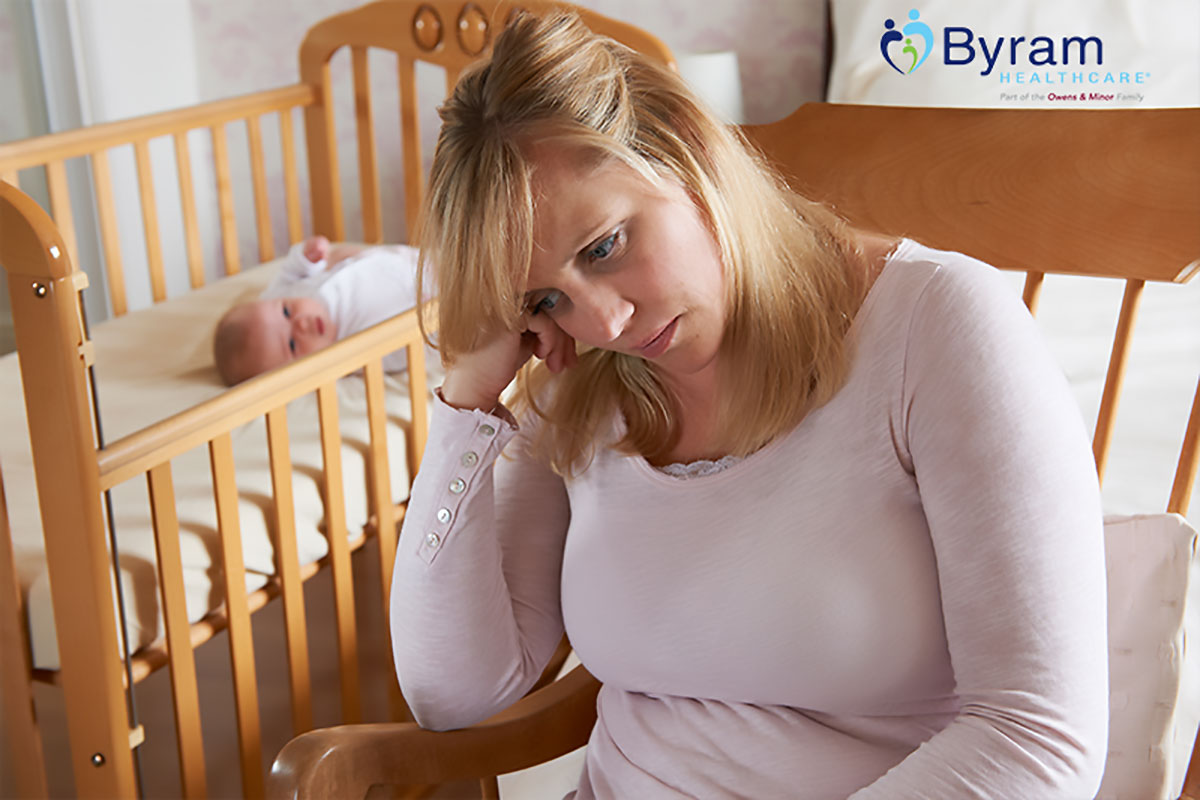10 Post Delivery & Recovery Expectations
Most parents are extremely organized when it comes to taking preparatory measures for a new baby. They design a nursery, get all of the appropriate gear ahead of time, and some even pack a delivery bag weeks – even months – before the big day. All of these are great things to do! Preparation is key to reduce stress and anxiety during pregnancy, yet nobody seems to talk about how to prepare for the intense changes to your body post delivery.
If you’re having a vaginal delivery, the recovery period is tedious and difficult, especially for those who are unprepared. You’re bringing a whole new life into the world, so what else could you expect? You will incur some trauma and if you want to be prepared to take care of your newborn as best as humanly possible, you need to prepare for your post delivery recovery.
Instead of letting a wave of aftershock knock you off your feet, check out these 10 post delivery and recovery expectations and start preparing today.
What to Expect
Some things on this list will seem scary, but remember that if your body couldn’t handle it, giving birth would not be possible. If you have any questions or concerns, talk to your doctor before your due date.
1. A Seemingly Endless Period
Regardless of your delivery method, you will have a very heavy period postpartum. A lot of women think this is only associated with vaginal delivery, but it applies to moms who undergo a c-section as well.
Since you haven’t gotten a period in 9 months, this one is rough. Your postpartum period will be heavy and even has it’s own medical term: lochia. It lasts anywhere from two to six weeks and you’ll need to avoid using tampons during this time.
Instead, you’ll be using massive pads that a lot of new mothers compare to diapers. Don’t worry, even though it seems never-ending, it will eventually stop and your period will return to normal.
2. A Baby Bump Without the Baby
Contrary to what you might think, your stomach doesn’t immediately return to normal right after delivery. Even though you’re no longer carrying a baby, it will still look like you’re pregnant for a little while. Your uterus takes a while to return to its normal size and you’ll probably be carrying a few extra pounds of baby weight.
Remember… don’t compare your body to famous actresses and models or even Kate Middleton’s pictures hours after giving birth—it’s not realistic.
As long as you maintain a healthy diet, return to a consistent exercise routine post-healing, and breastfeed, you will notice your weight and your baby belly returning to normal.
3. Hard, Uncomfortable Breasts
During pregnancy, your breasts start producing milk and getting ready for breastfeeding. Once you start breastfeeding, they continue to produce milk regularly. Sometimes, milk ducts get blocked; other times, feedings are skipped in lieu of bottle-feeding. When this happens, your breasts will swell, become hard, and are often very uncomfortable.
To alleviate any pain, grab your pump or continue to nurse regularly. Once you get on a regular schedule, the engorgement will subside.
We always recommend breastfeeding your newborn, but even if you don’t you’ll still experience hard, uncomfortable breasts until your body receives the signal to stop producing milk.
4. A Tidal Wave of Emotions

Being pregnant causes a lot of emotions that whip you from happy to sad in an instant. This doesn’t go away right after you’ve delivered your baby. Instead, you’ll experience emotions ranging from extreme elation to, in some cases, postpartum depression. Some women continue to experience intense emotions long after delivery; others get lucky and stabilize quickly.
Keep your friends and family close and talk to someone if you’re feeling down. It’s completely normal and regardless of what you’re feeling, there are people that love you and will help you whenever you need it.
5. Traumatic Vaginal Wounds
Vaginal birth is intense. Some women are lucky and others end up with a number of tears, rips, and inevitably… stitches. This will make using the bathroom more difficult and in some women, leads to self esteem problems. Don’t worry! The worst is over and your body’s a phenomenal natural healer.
Follow your doctor’s recommendations for the healing process and before long, you’ll be back to normal.
6. Fewer Strands of Hair
As if it could get any worse… losing some hair is fairly common postpartum. Due to a large fluctuation in your hormones, especially during delivery, it’s normal to lose a few strands of hair here and there. Your hair will eventually return to your pre-pregnancy status, so don’t be too alarmed!
7. Overall Body Weakness
When carrying a baby, your core muscles get stretched pretty intensely. After giving birth, they’re not going to instantly rebound back and you’ll experience a lot of body weakness. Most women need help sitting up for the first few days or weeks, but your strength will return! After you’ve healed, focus on doing core exercises and other bodyweight exercises.
8. Hormone Fluctuations
We’ve mentioned how hormone fluctuations affect your mood and your hair, but they also affect your body’s overall regulation system. A lot of women experience symptoms similar to menopausal hot flashes after giving birth.
Once your hormones start to stabilize, your body will cease to feel like it’s menopausal. Just be patient, grab a fan, and prepare the ice packs.
9. Terrifying Bowel Movements
With all of the stitches and swelling happening down there, going #2 will be scary. Take your time and avoid extensive pushing. Make sure you clean yourself well to avoid any infection and call your doctor if there are any problems.
10. Frustrating Breastfeeding Experiences
A lot of mothers experience difficulty with breastfeeding immediately after birth. You and your baby are both new to the experience and it will take a few tries to get things going strong. If you continue to struggle, don’t give up. Look into a latching consultant or any resources your doctor has. Eventually, both you and your new baby will get the hang of it and you’ll experience all of the joys that accompany breastfeeding and bonding with your little one.
How to Prepare Before Birth
Now that you have a better understanding as to what to expect, it’s much easier to get prepared. Here are a few things to do to reduce the intensity of post delivery problems.
- Keep a healthy diet rich in anti-inflammatory foods, foods to prevent muscle soreness, and foods high in fiber.
- Master the kegel exercise and repeat it every day.
- Ease into labor, push gradually, and avoid contracting your muscles so hard it hurts.
- Stay hydrated.
- Apply moisturizer daily to avoid tearing.
- Start doing mild but regular exercises to strengthen your muscles after birth.
If you need to add any supplements or change your diet dramatically, always talk to your doctor beforehand.
How to Help Healing After Birth
Post delivery is rough. Your body just brought a whole new person into the world! Take it easy and be kind to yourself. Here are a few ways other than time that will help aid the healing and recovery process.
- Apply an ice pack and keep it there all day following delivery.
- Take Ibuprofen or a mild pain reducer—talk to your doctor first to make sure it’s okay.
- Keep a healthy diet to help your body recover faster.
- Breastfeed!
- Get up and move around when you feel strong enough, but sit down when you don’t.
- Take a warm shower every day and keep your vaginal area clean, but don’t use soaps and avoid direct washing for now.
- Use a peri-bottle when you use the bathroom.
- Start doing kegels, but only in moderation—work on building your strength back up gradually.
Conclusion
Just as labor is different for every woman, so is recovery. Not every new mom will experience all of the post delivery and recovery expectations and some will. We don’t know which cards we’ll be dealt, so it’s best to prepare for the worst and hope for the best. Understanding these 10 post delivery and recovery expectations is a great place to start. If you have any questions about your specific situation and want to discuss your options, call your doctor. It’s always best to talk to someone that knows your body and will help you understand all of your options before they happen. During your post-delivery planning, don’t forget to head over to Byram Healthcare to browse all of our available manual and electric breast pumps. Thanks to the Affordable Care Act, expectant mothers are eligible to receive an electric breast pump covered by their insurance provider!
We’d love to hear your experiences with any of these post delivery and recovery issues and how you overcame them. Sometimes, it’s difficult to remember that other moms have experienced these too so we always encourage stories, tips, questions, and comments. Head over to our Facebook page today and get active in our community of moms!






